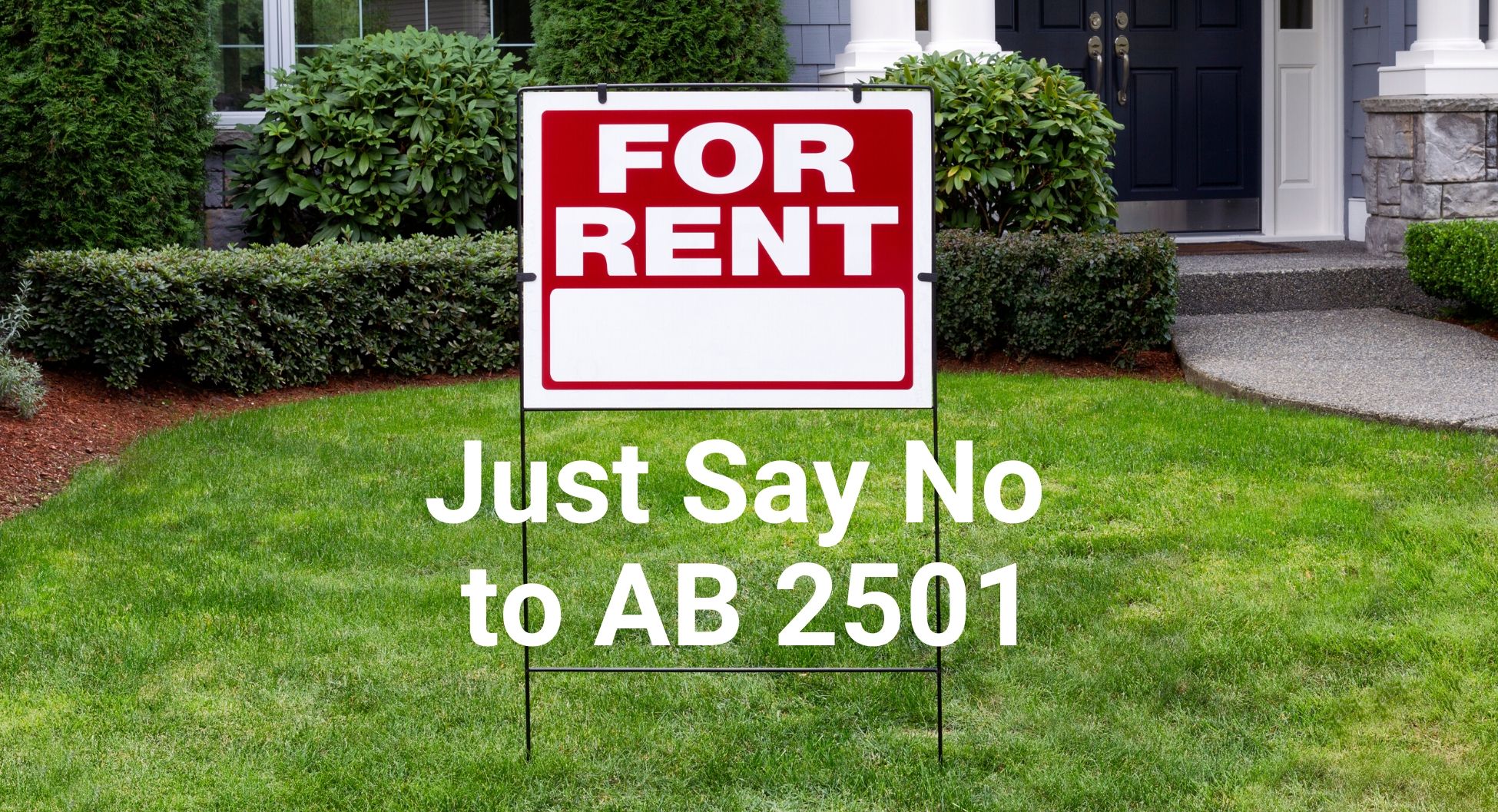I’ve written a few columns on rent control lately because the State of California is paving roads with good intentions, and we all know where those lead.
No one disputes that California has a housing shortage. In late 2019, we were about 3.5 million homes short of meeting the need of California residents. No one disputes that getting kicked out of your home during a global pandemic feels unfair when you did nothing wrong and yet, you can no longer afford your rent or mortgage payment. No one who understands economics disputes that there’s a risk-return trade off: as a rule, people don’t invest when they think they’ll lose money.
Here’s the problem: it appears to me that people who do not understand economics are making laws, and they do not realize the consequences of their actions. These laws will hurt the very people they’re designed to protect. It has been proven time and again that rent control interferes with the housing market such that fewer people invest in housing (making our housing shortage worse), and those looking for housing (people who have lost their homes) can’t find it because investors aren’t willing to fund new housing.
Three recent California laws interfere with negotiations between landlords and tenants. State Assembly Bill 1482 prevents residential landlords from raising rent more than 5 percent, plus the local rate of inflation, in a single year. State Senate Bill 329 prevents landlords from considering the source of a tenant’s income. Finally, Governor Gavin Newsom recently extended Penal Code Section 396, the anti-gouging rule that went into effect after wildfires ravaged the state. Section 396 prevents landlords from raising the rent more than 10 percent above pre-emergency levels. All three laws discourage people from investing in the housing market.
And now there’s State Assembly Bill 2501, which is a poorly written bill without adequate safeguards that would require financial institutions and financial service businesses to essentially carry mortgage payments for up to two years after the COVID-19 state of emergency ends, before they can start the collection process (which also takes at least four months). Here’s what AB 2501 does:
Threatens California Jobs – Investors depend on income from rental properties to support themselves and their families. Some loan servicing contracts require the collection agent to forward mortgage payments to the lender, even if they have not collected them. Servicers cannot afford to cover mortgage payments when others default, and forcing them to do so could cause them to close their business and end any jobs they provide.
Is Unconstitutional – AB 2501 blatantly interferes with existing contracts, putting it in violation of State and Federal Constitutions.
Is Ripe for Abuse – AB 2501 does not require any proof on the borrower’s part to qualify for relief. To prevent abuses, the borrower must be required to provide proof that their income has been significantly affected by COVID; otherwise, borrowers with little or no negative COVID impact could easily obtain unneeded relief, which would send loan defaults soaring. Not requiring proof is patently irresponsible.
Will Increase Litigation – AB 2501 will result in significant additional litigation, mostly without merit, increasing the cost to originate and service a loan (a cost ultimately borne by borrowers) and further burdening the court system.
Will Reduce Access to Loans – AB 2501 will significantly deter lenders from lending in California, knowing that California’s government does not honor contractual agreements. Restricted access to capital will make it harder for California residents to obtain new loans. This will also result in fewer mortgage origination jobs at a time when California needs to create more jobs.
Defies Logic – It makes absolutely no sense to apply these restrictions to loans that have matured or where there is a non-monetary default, as in cases where the borrower committed waste, fraud, or violated the due-on-sale clause; or where the default occurred pre-COVID.
Is Unfair – If the protection of residential property is of such importance, it is a cost that should be borne by all taxpayers of California, not just those who happened to be lenders or landlords.
Legislators are having a knee-jerk reaction to COVID-19, trying to protect housing because housing is a necessity. However, by their logic, grocers should give away food, utilities should offer services without charging for them, and doctors and nurses should work for free. The bottom line is this: the state legislature is tinkering with a trillion-dollar economy with no concept of the unintended consequences. People who invest in property depend on that income for all sorts of things—to pay for skilled nursing care for their parents, to send their children to college, to live on during retirement. I worry the real winners will be the lawyers who will benefit from the rush to the court systems as people seek justice for this and other well-meaning but poorly written laws.
If you feel inspired to contact your local representative, please do so today. Here’s their contact information. The more pressure we apply, the more likely we are to affect change.
Mike McGuire
(707) 576-2771
State Capitol Room 5064
Sacramento, CA, 95814-4900
[email protected]
Jim Wood
(707) 463-5770
California State Capitol P.O. Box 942849
Sacramento, CA, 94249-0002
[email protected]
If you’d like to discuss this further, please contact me at [email protected] or call (707) 462-4000. Dick Selzer is a real estate broker who has been in the business for more than 40 years.


